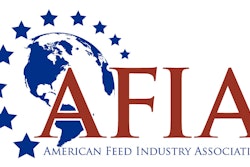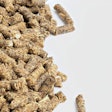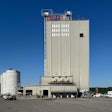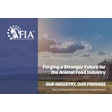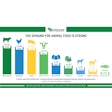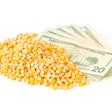An innovative new tool that allows for rapid, on-site analysis of soybean meal quality is now available for use across the soy, feed and livestock industries. FeedCheck Soy was launched today by Canadian Bio-Systems Inc. (CBS Inc.) at the International Production & Processing Expo (IPPE) in Atlanta.
The simple-to-use test kit employs a uniquely tailored assay design that allows users to conveniently and accurately assess their soybean meal samples for the presence of anti-nutritional factors such as trypsin inhibitors. This puts the power of quality assurance into the hands of anyone involved in producing, processing or using soybean meal for livestock feed, helping to support best quality and results across the value chain.
“In recent years we have seen a major trend toward diversification and expansion in the amount of micro-processing activity for soy taking place across the industry, including activity aimed at smaller-scale niche opportunities,” says Rob Patterson, Technical Director of CBS Inc. “There has been a rising need for practical, accurate, cost-effective, on-site testing options that anyone can use to support quality assurance in this new environment. This is what FeedCheck Soy is designed to provide.”
Practical, fast and accurate quality assurance
The tool, available direct from CBS Inc., is robust and dependable, says Dr. Anangelina Archile, CBS Inc. Technical Services Manager, who was closely involved in the test kit design. It works by using a reaction reagent uniquely tailored to indicate the presence of residual urease, which is an indicator of the presence of trypsin inhibitors. The reagent indicates areas of high urease activity by changing those areas of the sample to a red-wine color. The test kit comes with an easy-to-follow instruction booklet that includes a reference guide for interpreting the results. Based on the degree and amount of colorization, users can clearly see whether levels of anti-nutritional factors are within optimal or low risk range, or whether there are issues related to under- or over-heating during processing.
“FeedCheck Soy allows you to quickly, clearly and reliably assess the quality of feed ingredient you are dealing with, so you can easily make decisions and adjustments,” says Archile. “It provides peace of mind and supports quality assurance at all levels. For example, if you are a farming operation processing soybean meal yourself of supplying to a micro-processor to be returned for your own use, you now have a new option to check quality and related equipment calibration.” The tool has a strong potential fit for a full range of types and scales of soy micro-processing operations, which can now test samples on site, saving substantial time, effort and cost compared to sending samples off site for testing.
Protecting value for feed and livestock industries
Ultimately, anyone involved in producing, processing or using soybean meal can benefit from the introduction of convenient, practical and economical quality testing options, says Patterson. “Sub-optimal soybean meal processing represents a major, yet often overlooked, loss of value across soy, feed and livestock industries. Even if the processing level is off only marginally the soybean meal quality can be substantially compromised. This means lower feed quality and less nutritional value for livestock, which undermines efficiency, performance and profitability.” Anti-nutritional factors can also reduce the effectiveness of feed additives, he says. “There’s a domino effect of substantial value loss that stems from any soybean meal quality issue.”
Temperature during processing is a critical factor, he notes. It needs to be high enough to minimize anti-nutritional factors without being so high that it burns and damages desirable soy protein. “In the past with large processors dominating soybean meal processing activity, quality assurance was arguably less of an issue,” says Patterson. “The reality is that the industry has continued to evolve and diversify. Now the quality assurance tools available need to evolve and diversify along with it. Options such as FeedCheck Soy will help dial in quality assurance in situations where soybean meal quality has become more vulnerable.”
Maximizing nutrition and energy capture
Advancing the sophistication in assessing and understanding feed ingredients is a rising focus for CBS Inc., says Owen Jones, President of CBS Inc. “The more we can do to better understand and support the highest quality in our feed ingredients, and the highest potential for nutrition and energy capture from those ingredients, the better we can support a strong and sustainable future for livestock production and related feed industries. This is one of the reasons why CBS Inc. has continued to evolve with a strong focus not only on innovation in bio-based feed additive technology but also innovation in broader areas of feed ingredients expertise. This will continue to be an area of increasing emphasis for our company in the future as part of delivering value to our customers, partners and the industry at large.”
An instructional video for FeedCheck Soy is also available. Visit www.canadianbio.com for more information including how to order a FeedCheck Soy test kit. During IPPE information is also available at the CBS Inc. booth, Hall B – B8626. CBS Inc. is an innovation-focused company that researches, develops and manufactures a wide range of bio-based products used in feed, food and industrial applications. It is a pioneer and leader in enzymes and other bio-based feed technology options, leveraging over 30 years of research and development.
New On-site Test for Soybean Meal Quality Announced
Canadian Bio-Systems Inc. launches FeedCheck Soy
November 30, 2020





